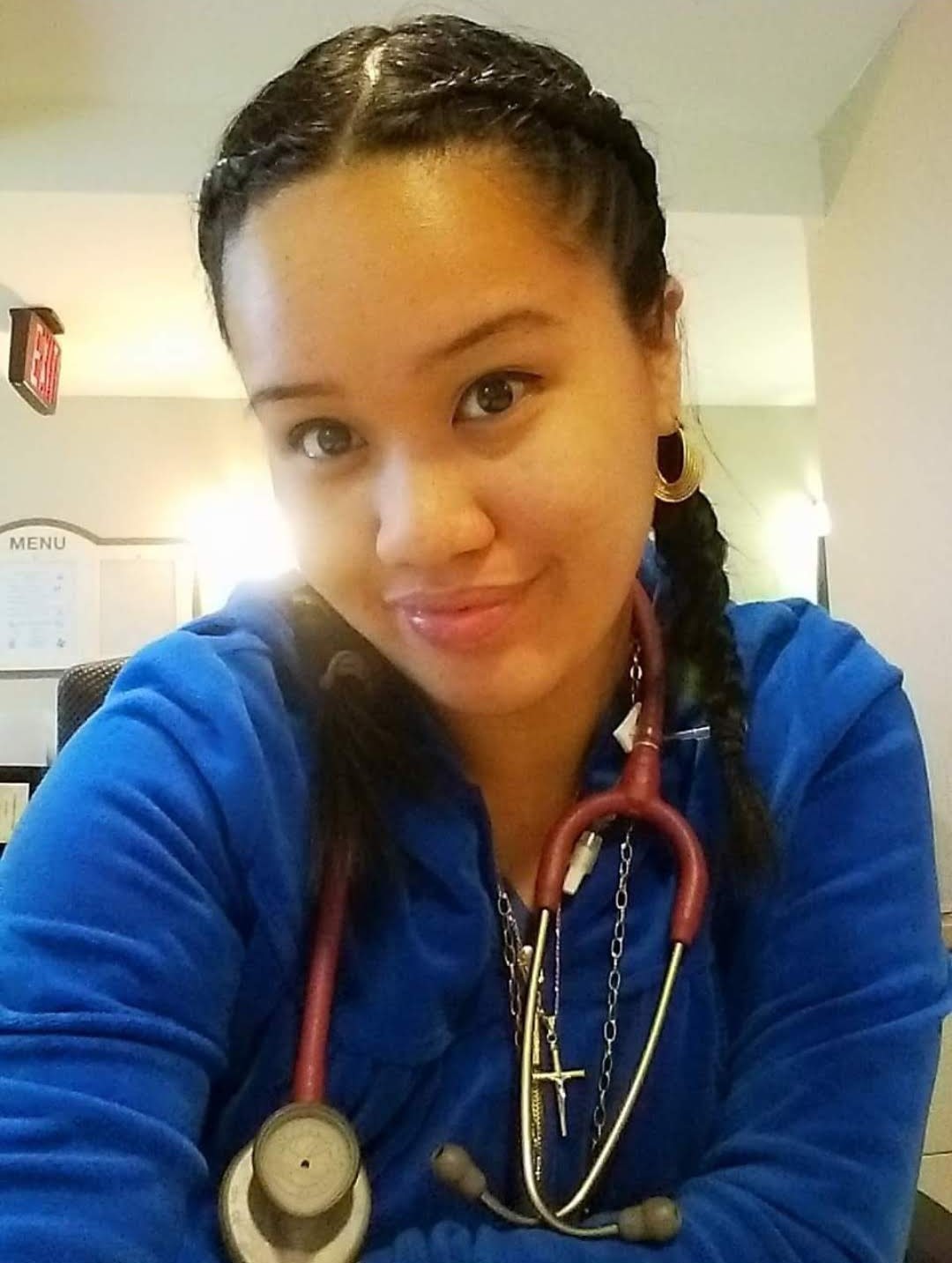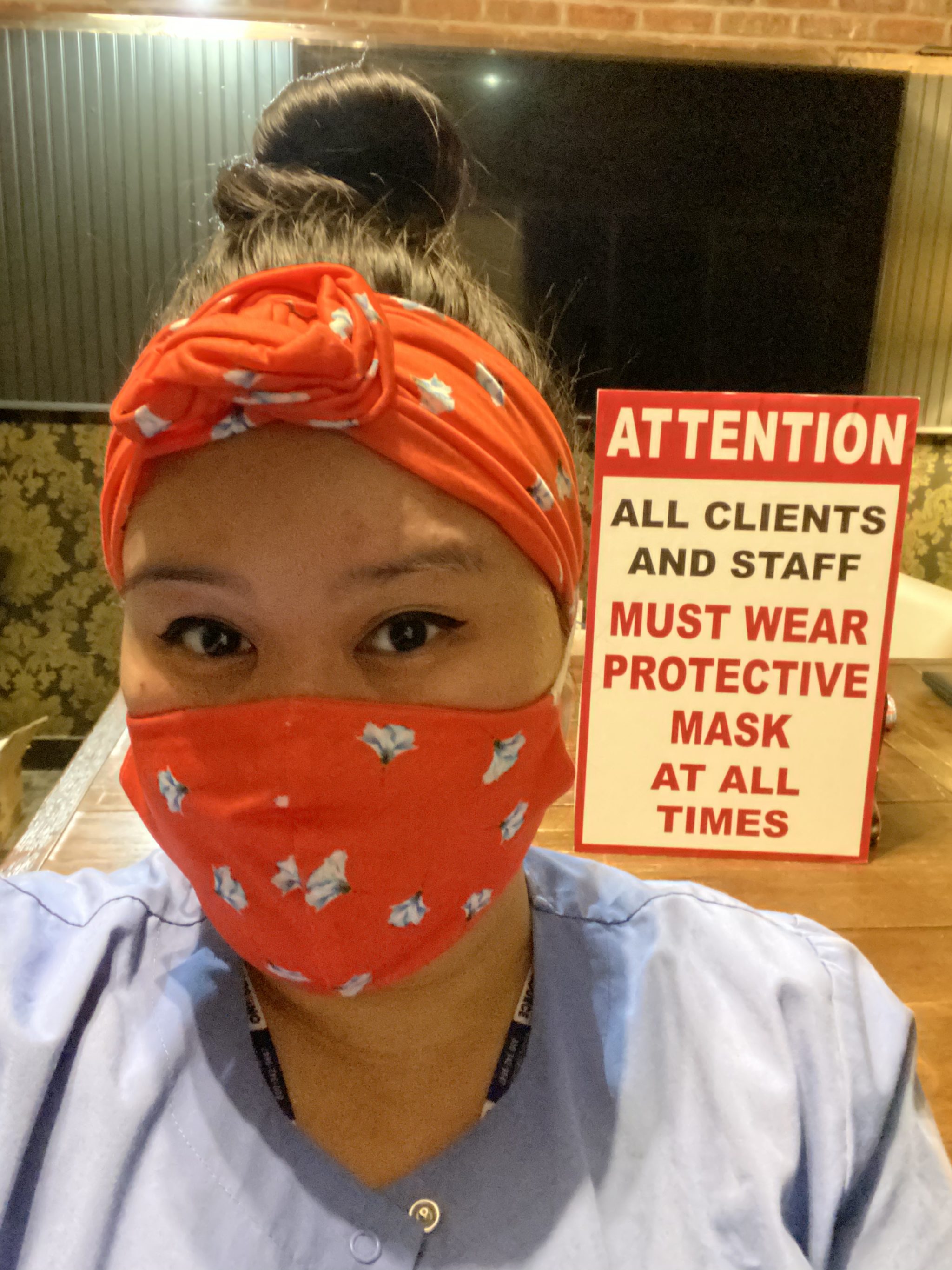Nurse Appreciation Week runs from May 6th to May 12th and I think we can all agree that they deserve much more than just one week of recognition. Doctors may wear the strong titles but without nurses to provide aide, compassion, and medical attention, the healthcare system could very well crumble. Nurses are the ones coming in every few hours to check on you, administer new I.V.s, monitor medication intake, and even help explain to your loved ones the medical issue at hand.
When COVID-19 hit the United States in 2020, no one was prepared and no one predicted how bad things were going to get. Nurses were put to the test to face this challenging pandemic that most people underestimated – even healthcare workers themselves.
Joy Burroughs, LPN, 34 from Jersey City has been a nurse since 2013 and was recruited by the state of New Jersey to aide amid the global pandemic.

Interviewer: Tell me about yourself – what made you become a nurse and when?
Joy Burroughs: Honestly, being a nurse wasn’t my first choice because everyone in my family is a nurse and they expected the children to follow the footsteps. I was undecided in college and eventually took a break. Two years went by and I realized the path I chose was challenging and unstable, so I decided to give medicine a try. I first went to school to become a medical assistant and after graduating, I immediately landed a job. After a few years of working as a medical assistant, I grew to love the medical field and decided to further my career. So, I finally pursued nursing school and graduated in 2013.
I: Prior to COVID, what was a typical day in the life of being a nurse?
JB: Nursing is a broad field; as a nurse, you can work at various settings. For the past five years, I’ve been working at a hospital in the outpatient facility. My department is where patients go see their PCP or their specialist (e.g., cardiologist, gastroenterologist, etc.). My department functions as a clinic setting. Pre-COVID, my patients came in for their visit, we assisted the doctor with evaluations or tests/procedures they needed, then we would discharge the patients to go home. Our volume was anywhere between 50-100 patients daily. Post-COVID, everything shifted to telephone visits.
I: What was the hardest case you had to face?
JB: Again, with how broad nursing is, there is never just one hard case. Each case is challenging in its own way. I can recall one patient who visited the clinic for COVID symptoms and was disoriented and feeling lethargic. This was early in the pandemic, right before the lockdown. Upon evaluation, I discovered the patient was hypoglycemic with blood sugar in the 40s. I immediately administered a glucose pack and snacks. All while maintaining isolation precautions and ensuring my PPE was always on correctly. It is challenging to care for patients in an urgent situation with COVID because you want to provide the best care you can while trying to protect yourself as well.
I: Tell me about a moment when you felt like you made a true difference in someone’s life.
JB: I made a true difference in that (previously mentioned) patient’s life because as soon as the patient started becoming oriented, she thanked me from the bottom of her heart and said she appreciates all [the work] that we’re doing, especially during the pandemic.
I: How were nurses appreciated before the pandemic took over?
JB: Not much. I think nurses were overlooked before the pandemic. I believe people just thought that taking care of people was just our job and something we had to do. So, there was not much appreciation showed.
I: What did you think when the pandemic first hit the states?
JB: I thought it would have affected us [similarly] how the Zika virus affected us. Zika was a scare, and we took precautions, but it wasn’t major threat. I did not expect COVID to be this way at all, along with the rest of us in the field. And it showed because when it hit hard, we were not prepared.

I: How were nurses appreciated when it started?
JB: Still not much because when it started, everyone was in panic mode and the focus was not on who to appreciate, but more so how to put a stop to this pandemic.
I: You were recruited by the state of New Jersey. Tell me more about that. How did you feel when you were called by the state?
JB: The state was calling, texting, and bombarding my email with messages from recruiters to work in the pop-up COVID hospitals or housing facilities. I opted to help at the housing facilities, which were basically hotels that were turned into a place for patients who were COVID-positive although not sick enough to be in the hospital [but] needed a place to receive care and to quarantine. I felt that it was my duty as a nurse to extend as much help as I was able to provide, especially when I am being called upon. I had some extra days during the week to spare when I wasn’t at my other job, so I worked for [the state] during those days. I left myself at least 1 day off during the week to rest and reset.
I: How did COVID affect you? Mentally and emotionally.
JB: COVID exhausted me. Having to adapt to an entirely different workflow, having to learn new safety protocols before each shift, having to sport full PPE between patients hoping I’m fully protected, dealing with the nervousness of catching this new deadly virus, and the fear of the unknown… it just stressed me out tremendously. To this day I feel like we can never be too safe.
I: What did you feel when the COVID numbers finally began declining?
JB: I felt some relief of course, but after seeing a decline then an incline and a decline and incline again, I began to understand that this pandemic isn’t over. Even though society is slowly trying to get back to “normal,” people are getting vaccinated and ditching their masks, us healthcare providers are still constantly working hard to learn about and fight this virus. We still care for patients who are fighting for their lives or struggling to get their lives back to normal from the effects of having COVID.
I: Did you ever second guess your career?
JB: I have, but throughout the years I’ve realized that nursing is my calling.
I: What motivates you to continue being a nurse?
JB: My family and friends who rely on my knowledge and expertise is my true motivation. The times when they or I become ill, and I know what to do or how to get help puts me at ease and confirms to me that I made the right career choice.
I: Now after a year, how are nurses appreciated now?
JB: I feel we are recognized more. At the height of the pandemic, we were offered many perks from many different platforms, for example, free meals, free subscriptions, major discounts, I’ve even won two round trip JetBlue tickets to anywhere from their healthcare heroes’ sweepstakes (shout out to JetBlue!). Although those were nice gestures, it was perks for the moment and not long term. I truly feel like we deserve more, like cheaper health benefits or yearly bonuses or mandatory vacation time or free scrubs! It’s probably a stretch but it’s not much to ask for from all the mental, emotional, and physical distress we encounter on different occasions.
I: What do you want people to know about nurses?
JB: We work hard to keep you healthy, so a little kindness and patience goes a long way. Thank you and be safe always!
I expressed to Joy that I wanted to highlight what nurses have been doing for years and how things have changed pre-COVID. When asked how things have changed post-COVID, she replied, “I can’t really answer for the ‘after’ because we are still in the pandemic! We haven’t gotten to that part yet.”
COVID has turned our world violently upside down and it has challenged our healthcare system on a global scale. While our nurses and doctors continue to fight this virus, we must remember they are human and the more we resist on protecting ourselves, the more hardships we are setting upon them. According to MedScape via Aspen University, COVID has “taken the lives of over 600 American healthcare professions and over 100 of them were nurses who cared for COVID-19 patients.”
While vaccines are becoming readily available, please be mindful that we are still fighting a pandemic and nurses are risking their lives for us. “COVID is definitely not over.”
You must be logged in to post a comment.